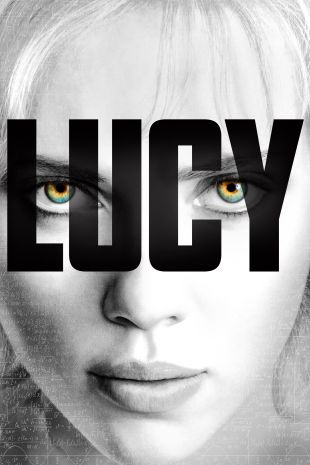
Following in the recent tradition of high-concept sci-fi action thrillers like Inception, Lucy is at its best when it's either reveling in explosive action sequences, or delving into deep, metaphorical philosophy. The moments in between, when the characters actually attempt to explain the pseudo-science that drives the plot, as always, are this genre's weak points. But while you're in the middle of enjoying the ride, it probably won't matter.
The story rests entirely on the oft-quoted factoid that human beings only use 10% of their brains, proposing that thus, activating that unused 90% could offer us wild and crazy superpowers. Of course, any nerd worth their salt knows this figure isn't even true -- it's a bastardization of the assertion by early 20th century neurologists that they only understood how we use around 10% of the brain. But in the end, this probably isn't a deal-breaker for most viewers, because director and writer Luc Besson (The Fifth Element, The Professional) is adept at distracting us with sweet car chases and tense shootouts. He eventually eclipses the dumb exposition from the movie's first act with some way-smarter content, which comes in the form of subtext. It's sort of like The Matrix (the first one, anyway), where the story makes a lot more sense if you take it as an analogy for more abstract, spiritual ideas. But in the meantime, you get to follow a badass woman as she rapidly evolves beyond the human understanding of the universe and exacts unflinching, hardcore beat downs on the Taiwanese gangsters who get in her way.

That woman is the titular Lucy (Scarlett Johansson), who is kidnapped by Asian drug kingpins and used as a drug mule to cart a bag of a new, uncut synthetic superdrug across borders. The only catch is that the criminals do this by surgically implanting it into her abdomen. So when one of her captors (who apparently didn't get the message from his superiors not to beat the hostage) beats the hostage, the bag leaks and Lucy gets a rapid overdose of the mysterious substance, which instantly sends her body into evolutionary overdrive, granting her access to the latent abilities offered by that heretofore unused 90% of her brain. She can do everything from control her own metabolism and heart rate to perceive and manipulate electromagnetic fields, and as the process that the drug set into motion continues, she only gets more powerful. She's free from attachment and fear, and injury doesn't mean much when she can control the divisions of her own cells. With the gangsters still on her tail, she tracks down Professor Norman (Morgan Freeman), a neuroscientist who focuses on the evolution of the brain.
You may remember one of the last times Besson focused his movie around a female supreme being, the orange-haired Leeloo (Milla Jovovich) from The Fifth Element. But Lucy is a very different character; she's not cute or bubbly, she's cool and calculated. Like Dr. Manhattan from Watchmen, part of Lucy's character arc is that her abilities make her so removed from her ego, her attachments, and her former perceptions of space and time that she's in danger of no longer relating to the human experience.

But this isn't to say that Lucy is cold -- as a film or as a character. Besson's directorial style is kinetic: His edits and cutaways crackle with hyperactive references, and Lucy's exploits in superhuman badassery are dotted with tongue-in-cheek humor. The plot points may sound kind of silly on their own, but by the end, Lucy literally sits through a sequence in which she realizes that time isn't linear, humans just perceive it that way. The idea of utilizing 100% of her brain's "capacity" emerges as a metaphor for profound, nonphysical enlightenment. This is where the Matrix comparison becomes apt. Remember "There is no spoon,"? It's like that.
It's possible that Besson (or the studio) tried to balance out the fact that the movie gets so heavy in the final act by making it kind of stupid in the first act. This would explain the apparent lack of a science consultant, who could have made the brain stuff at least sound like it kind of makes sense. But if you can forgive or ignore those faults, Lucy delivers the goods by the end, both as a brainy thought experiment and as a summer popcorn flick.
